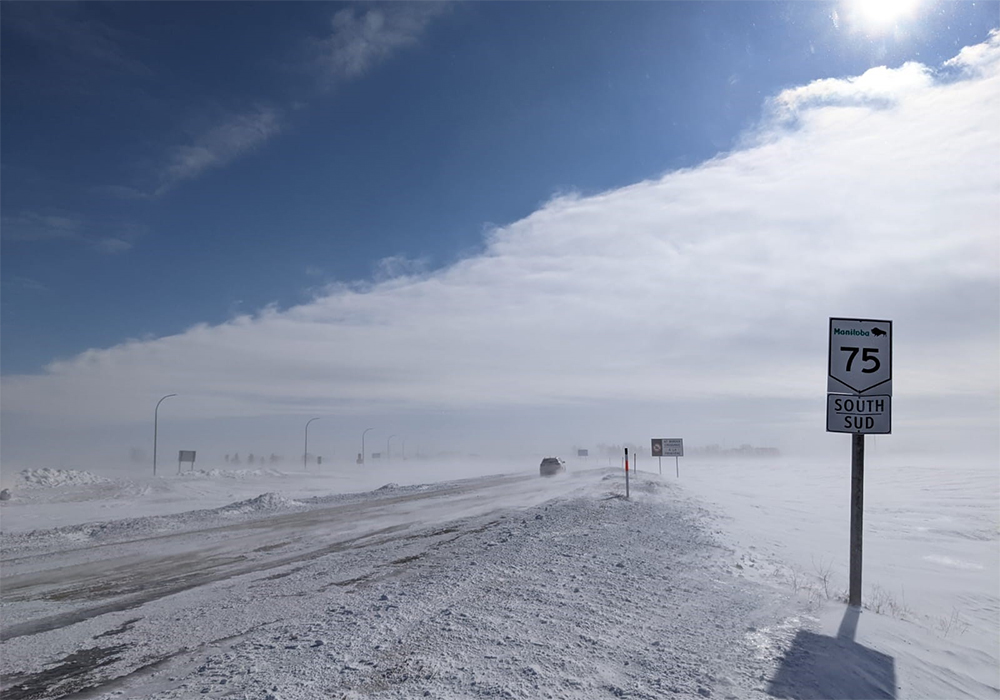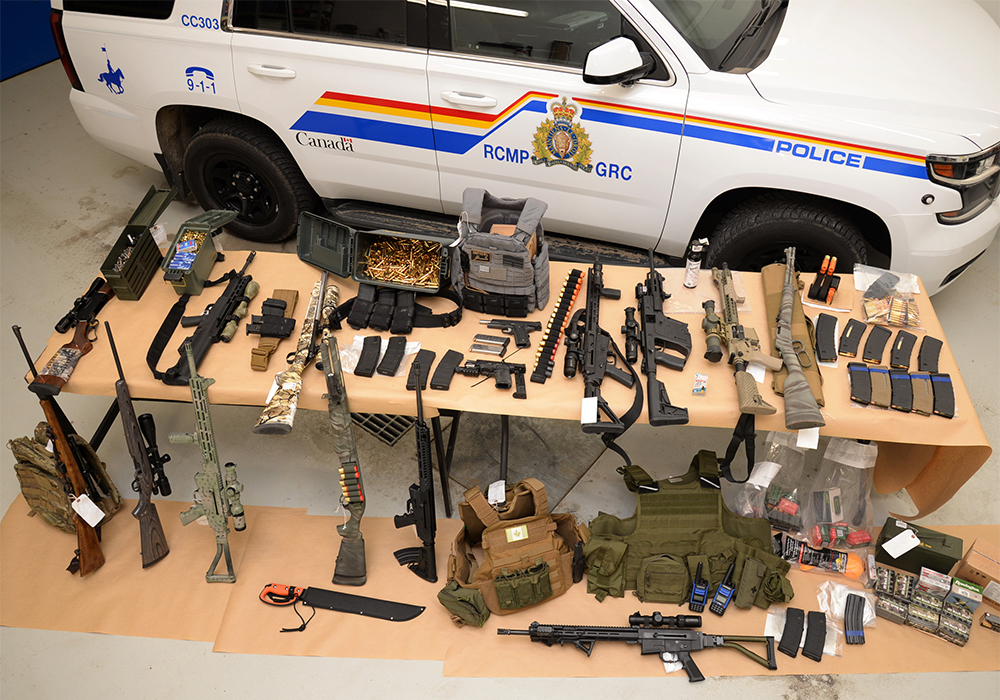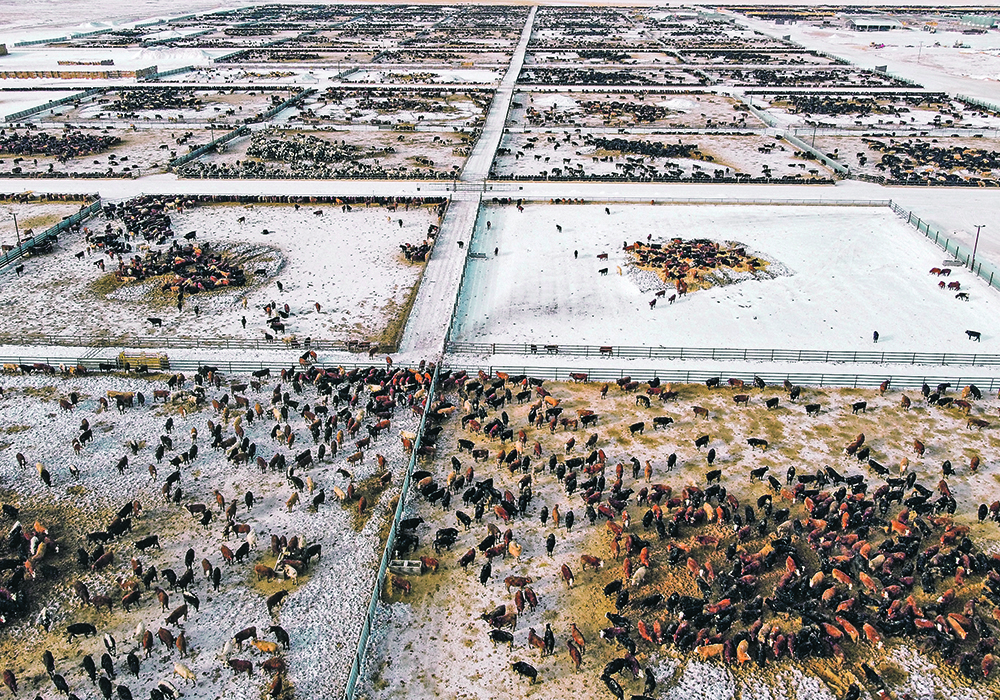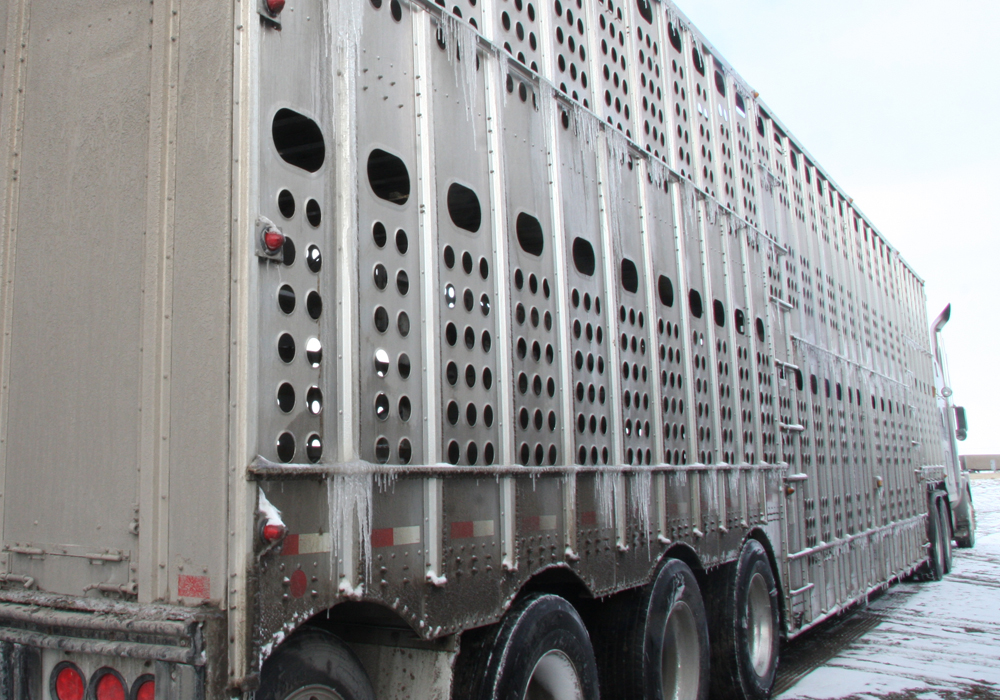Border crossing is particularly important for province’s hog industry with pigs going south and soymeal moving north
A protest that began Feb. 10 has slowed or shut down commercial truck traffic for days at the busiest border crossing in Manitoba.
A group of 50 to 75 vehicles, including trucks, tractors and other agricultural equipment, have been at the Emerson Port of Entry since the morning of Feb. 10. The border crossing connects Highway 75 to Interstate 29 and is the primary route for hundreds of Manitoba truckers, who transport goods, livestock, grain and other commodities into the United States.
The route is particularly important for Manitoba’s hog industry. Weanlings and pigs from Manitoba go south to barns in the U.S. and soymeal from America is shipped into the province.
Read Also

Alberta crop diversification centres receive funding
$5.2 million of provincial funding pumped into crop diversity research centres
As of Feb. 14, most livestock trucks were moving across the border.
“Through the weekend, trucks were being delayed but were allowed to cross,” said Cam Dahl, Manitoba Pork Council general manager.
“I just saw an update, that they’ll continue to be allowed to cross, without delay.”
So far, there haven’t been animal welfare issues because of the delays at the Emerson Port of Entry, Dahl added.
The blockade at Emerson is part of a larger border protest as a small number of Canadians have completely obstructed or partially blocked the flow of traffic at border crossings in Windsor, Ont., and Coutts, Alta., during the first two weeks of February. The protesters are calling for an end to all COVID-19 mandates in Canada, including mask requirements and vaccine passports.
Eight agricultural organizations, including the Canadian Cattlemen’s Association and the Canadian Pork Council, have called for an end to the border blockades and asked “all levels of government to work collaboratively towards action to reinstate integral transport and trade corridors,” the groups said in a statement.
The groups estimated that $137 million in agricultural commodities and food move through the Canada-U.S. border each day. They say it’s time for the disruption to end.
In a similar message, on Feb. 14 the House of Commons agriculture committee unanimously passed a motion by NDP agriculture critic Alistair MacGregor calling for an immediate end to illegal blockades at Canada’s border crossings.
In Manitoba, livestock trucks may be moving through the Emerson Port of Entry, but some feed shipments to the province have been delayed or canceled.
Dahl said the supply chain in Manitoba’s pork industry was struggling before the border protest.
“Livestock truckers (have) a specialized skill and there aren’t enough of them,” Dahl said.
“We saw constraints because of the Canada and U.S. mandates (requiring truckers crossing the border to be vaccinated). That put further strain on an already brittle system…. It’s not just (the protest) that started last Thursday. It’s a buildup of pressure on a supply chain that’s already brittle. It’s cause for significant concern.”
Manitoba premier Heather Stefanson has said unlawful action, such as border blockades, cannot be tolerated. However, the premier wants the RCMP in Manitoba to manage what’s happening at the border and doesn’t support the idea of using the federal Emergencies Act to end the blockade, as prime minister Justin Trudeau invoked Feb. 14.
“(The) Emerson border situation is very different than the one faced in Windsor,” Stefanson said. “In my view, the sweeping effects and signals associated with the never-before-used Emergencies Act are not constructive here in Manitoba, where caution must be taken against overreach and unintended negative consequences.”
Dahl hopes the border crossing is fully open as soon as possible, but Manitoba Pork is focused on its industry and its farmers.
“Our goal is to do what we can, to make sure we have animals moving south and feed moving north,” he said. “How the political side of things get resolved, we’re going to leave (that) to other people.”















